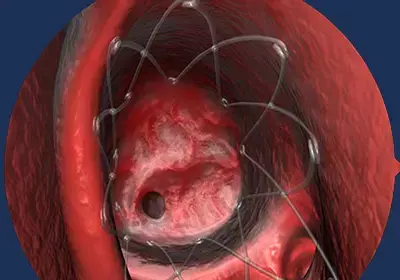- Home
- Medical news & Guidelines
- Anesthesiology
- Cardiology and CTVS
- Critical Care
- Dentistry
- Dermatology
- Diabetes and Endocrinology
- ENT
- Gastroenterology
- Medicine
- Nephrology
- Neurology
- Obstretics-Gynaecology
- Oncology
- Ophthalmology
- Orthopaedics
- Pediatrics-Neonatology
- Psychiatry
- Pulmonology
- Radiology
- Surgery
- Urology
- Laboratory Medicine
- Diet
- Nursing
- Paramedical
- Physiotherapy
- Health news
- Fact Check
- Bone Health Fact Check
- Brain Health Fact Check
- Cancer Related Fact Check
- Child Care Fact Check
- Dental and oral health fact check
- Diabetes and metabolic health fact check
- Diet and Nutrition Fact Check
- Eye and ENT Care Fact Check
- Fitness fact check
- Gut health fact check
- Heart health fact check
- Kidney health fact check
- Medical education fact check
- Men's health fact check
- Respiratory fact check
- Skin and hair care fact check
- Vaccine and Immunization fact check
- Women's health fact check
- AYUSH
- State News
- Andaman and Nicobar Islands
- Andhra Pradesh
- Arunachal Pradesh
- Assam
- Bihar
- Chandigarh
- Chattisgarh
- Dadra and Nagar Haveli
- Daman and Diu
- Delhi
- Goa
- Gujarat
- Haryana
- Himachal Pradesh
- Jammu & Kashmir
- Jharkhand
- Karnataka
- Kerala
- Ladakh
- Lakshadweep
- Madhya Pradesh
- Maharashtra
- Manipur
- Meghalaya
- Mizoram
- Nagaland
- Odisha
- Puducherry
- Punjab
- Rajasthan
- Sikkim
- Tamil Nadu
- Telangana
- Tripura
- Uttar Pradesh
- Uttrakhand
- West Bengal
- Medical Education
- Industry
Use of corticosteroid Eluting Stents may increase infection risk after sinus surgery

Implantation of sinus stents and spacers can be used as adjuvant management to maintain patency of sinuses after endoscopic sinus surgery for chronic rhinosinusitis.
In a recent study, researchers have reported the risk of postoperative infection associated with corticosteroid-eluting stents and recommend physicians to consider this aspect during the surgical decision and consent process. The study findings were published in the Otolaryngology-Head & Neck Surgery on April 13, 2021.
Corticosteroid-eluting stents (CESs) are increasingly used after endoscopic sinus surgery to reduce the need for revision surgery. However, their use is always associated with risks. Dr Vishal Narwani MD and his team conducted a study to describe and investigate the adverse events associated with the CESs.
It was a retrospective cohort study of the US Food and Drug Administration's MAUDE database. The researchers searched the MAUDE database for reports of adverse events involving the use of CESs approved by the Food and Drug Administration, including Propel, Propel Mini, Propel Contour, and Sinuva (Intersect ENT). They identified a total of 28 reported adverse events, with all events being related to the Propel family of stents and none related to Sinuva stents. They categorized 22 events as patient-related adverse events and six as device-related events.
Key findings of the study were:
- Upon analysis, they noted that the most common adverse event was related to postoperative infection, accounting for 39% (n = 11) of all complications.
- Among the 11 patients, they noted that four developed periorbital cellulitis and 5 developed a fungal infection.
- They reported that the second most common adverse event was the migration of the stent, representing 21% of all complications (n = 6).
- They also noted that overall, eight patients (29%) required reintervention in the operating room, with subsequent removal of the CES.
The authors concluded, "The most commonly reported adverse events were postoperative infection, including multiple cases of fungal infection, followed by migration of the stent. An increased awareness of the complications associated with CESs can be used to better inform patients during the consenting process as well as surgeons in their surgical decision making."
For further information:
https://journals.sagepub.com/doi/abs/10.1177/01945998211006930
Medical Dialogues Bureau consists of a team of passionate medical/scientific writers, led by doctors and healthcare researchers. Our team efforts to bring you updated and timely news about the important happenings of the medical and healthcare sector. Our editorial team can be reached at editorial@medicaldialogues.in.
Dr Kamal Kant Kohli-MBBS, DTCD- a chest specialist with more than 30 years of practice and a flair for writing clinical articles, Dr Kamal Kant Kohli joined Medical Dialogues as a Chief Editor of Medical News. Besides writing articles, as an editor, he proofreads and verifies all the medical content published on Medical Dialogues including those coming from journals, studies,medical conferences,guidelines etc. Email: drkohli@medicaldialogues.in. Contact no. 011-43720751


